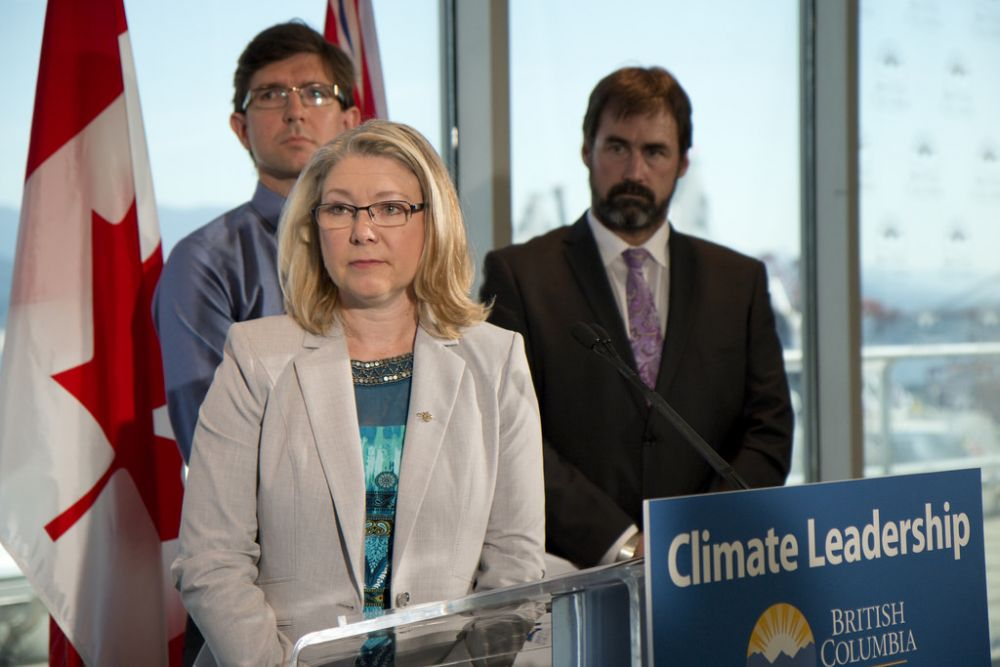On March 17, 2016, the Pembina Institute hosted the last of four webinars in a series focusing on the forthcoming B.C. Climate Leadership Plan.
Webinar 4 looked at how B.C. can maintain a strong economy while moving ahead with a strong Climate Leadership Plan that puts B.C. back on track to reducing its carbon pollution. Presenters discussed economic competitiveness and the potential for targeted measures to protect emissions-intensive, trade-exposed sectors.
The speakers were Matt Horne, B.C. associate director for the Pembina Institute; Nicholas Rivers, assistant professor at the University of Ottawa; Nancy Olewiler, professor at Simon Fraser University; and Dale Beugin, research director for Canada's Ecofiscal Commission. (Both Horne and Olewiler were members of the province's Climate Leadership Team.) Pembina Institute analyst Maximilian Kniewasser moderated the discussion.
Last month, the Pembina Institute released its formal submission for the B.C. government’s second consultation period toward the Climate Leadership Plan. The institute supports the 32 recommendations put forth by the Climate Leadership Team and encourages the government to implement the package of recommendations as a minimum bar for a strong plan.
In Recommendation 5, the Climate Leadership Team suggests that the province:
Increase the carbon tax by $10/yr commencing in July 2018 and, also supported by incremental carbon tax revenue, concurrently:
a) Maintain those current tax reductions achieved through the existing carbon tax that are broad based, provide support to vulnerable populations, or promote GHG reductions;
b) Adjust the current low income and rural and northern tax credits to ensure the most vulnerable individuals and families are not adversely impacted; and
c) Establish targeted and transparent mechanisms for emission-intensive, trade-exposed sectors that mitigate the competitiveness issues created for those sectors if B.C.’s carbon pricing is materially greater than jurisdictions with which they compete, provided that such mechanisms are structured in a manner that does not adversely impact the price signal to reduce emissions. These adjustments should remain in place until such time that carbon pricing and regulatory policy equivalency with other jurisdictions is achieved.
The current Climate Leadership Plan consultation ends on March 25. British Columbians can submit their input via the government's Climate Leadership Plan website.
Meanwhile, the Board of Change, Clean Energy BC, Climate Smart, Pembina Institute and Clean Energy Canada are working with B.C. businesses to register their support for a stronger carbon tax. Businesses are invited to sign on to a letter calling for the Climate Leadership Plan to include "next steps on the carbon tax".
For more information on what’s needed for a strong B.C. Climate Leadership Plan, watch the other webinars in the series:
- What to know about B.C.’s Climate Leadership Plan process
- Managing methane emissions from B.C.’s gas sector
- B.C.’s carbon tax — developer and local government perspectives
The Pembina Institute is grateful for support from the Real Estate Foundation of British Columbia, Schein Foundation, Sitka Foundation and Vancity for this webinar series.
Want more information and updates on the B.C. Climate Leadership Plan from the Pembina Institute? Please sign up by emailing ClimateLeadership@pembina.org.



